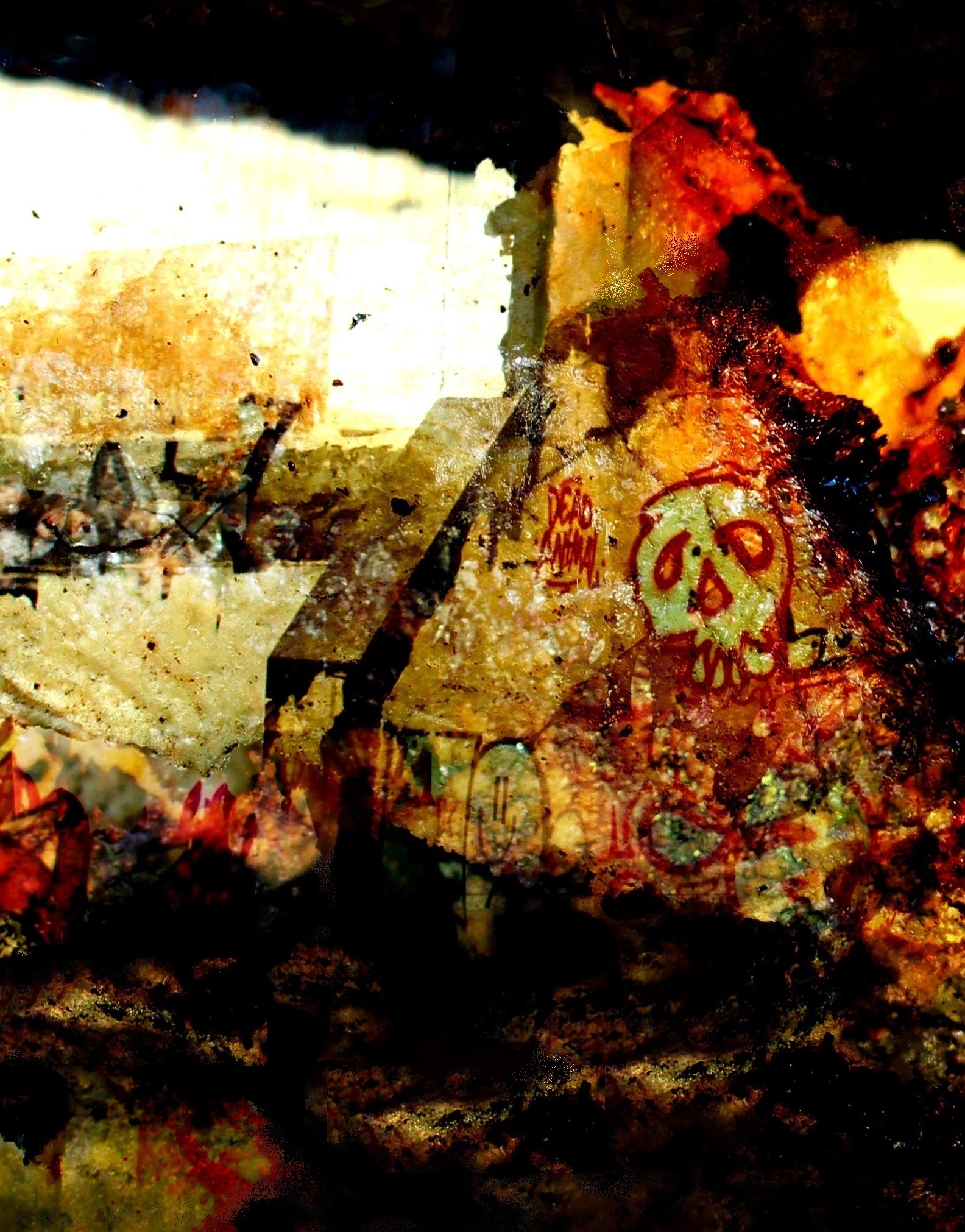#babylon

John William Waterhouse (1849-1917, English)
Thisbe
Gemälde, Öl auf Leinwand, 97 x 59 cm, 1909
#JohnWilliamWaterhouse #mythologie #ovid #thisbe #pyramus #babylon #malerei #realismus #kunst #art #paintings #gemälde #peinture #painting #realism #mythology
this for once is an interesting youtube channel: curator's corner. they even describe the game of ur somewhere in these videos ...
#babylon #sumer #archäologie #archaeology #archéologie #wissenschaft #IrvinFinkel #youtube


An Introduction to The Babylonian Map of the World–the Oldest Known Map of the World
1ST 5 MINUTES MISSING THE VIDEO BACKGROUND !! THEY DO NOT WANT YOU WATCHING THIS!! STAY WITH IT !!!
#jonathankleck has revealed stuff and they are freaking out as their spellcasting spell has been broken
#end of #babylon #system is at #hand
https://www.bitchute.com/video/iCUzMnpSMEHp/
Lenin and the Art of the Impossible
The Tree of Woe contemplates the impossibility of revolution:
Every rock star began as a long-haired freak in a garage with a dream of a record deal and groupies. Every best-selling author began as a would-be writer being told that no one buys books. Every successful entrepreneur began by faking it until he made it. Every revolutionary began as a nobody. None of them had the odds on their side. Victory wasn’t assured; it wasn’t even plausible; it was so unlikely as to seem impossible! It was all a LARP… until it wasn’t.¹
The reason so many successful actors, musicians, and politicians are narcissists is that in order to become a highly successful actor, musician, or politician, you have to take long shots against long odds. Often the only people who take long shots against long odds are the people who are self-deluded enough to think they’re better than all the others who tried and failed.
People like Lenin.
#Lenin was a #self-deluded #nobody. He was a #loser. He had accomplished virtually nothing with his life except a stint in the #gulag. He was nowhere near as influential as the well-established figures who currently are prominent among the dissident right. He wasn’t even… #NickFuentes.
But Lenin he changed the world. Sure, he changed it for the worse — but he changed it. And so could we.
The advantage we have as #Christian #Nationalists presently subject to the #wicked #madness of #ClownWorld is that we know, as Bob Marley said, #Babylon is going to fall. Its fall is absolutely 100-percent guaranteed, because Clown World is a #rebellion against #God, God’s #Law, and God’s #Creation. It is a rebellion against #morality, #mathematics, #Nature, and #physics, and as such, it cannot possibly be sustained.
It is our job to be the hard place upon which Clown World shatters. Because Clown World is caught between a rock and a hard place, and the rock, being #JesusChrist, isn’t going to break.
https://www.bitchute.com/video/PdkM54VsbRZA/
#vedic #vimana
#Bible #Symbolism: Mother #Babylon - #Dragon’s Lair
How Ancient Babylonians Predicted Eclipses
#Science #History #Astronomy #Babylon #Eclipses #BreakfastVideo
Philip Matyszak erforscht die Ursprünge der Kulturen und die Entstehung früher Herrschaftsdynastien. Sein Buch ist spannend, kurzweilig und sehr gut illustriert. Eine Rezension
Philip Matyszak stellt in diesem ansprechenden Sachbuch rund 40 Kulturen vor, die aus dem kollektiven Gedächtnis zu verschwinden drohen. Eine Rezension (Rezension zu Vergessene Völker von Philip Matyszak)#Kulturen #Völker #Akkader #Hochkulturen #Altertum #Antike #Ägypten #Aramäer #Arverner #Assyrer #Babylon #BiblischeVölker #Daker #Dorer #Europa #Geschichte #Galater #Hethiter #Hyksos #Kulturgeschichte #Kuschiter #Lyder #Meder #Mesopotamien #MittlererOsten #Nabatäer #NaherOsten #Numider #Ostgoten #Perser #Philister #Phryger #Rom #RömischesReich #Sabiner #Samaritaner #Samariter #SargonvonAkkad #Sumerer #Thraker #Vandalen #Westgoten #Kultur #ErdeUmwelt
»Vergessene Völker«: Verschollen in den Tiefen der Geschichte
https://www.youtube.com/watch?v=oj_34wR_bko
#TheWailers - #Babylon #System
31 Jul 2019 ... The Wailers Performing 'Babylon System' at the Avalon Theatre in historic Easton
3,700-year-old Babylonian stone tablet gets translated, changes history
They were doing trigonometry 1500 years before the Greeks.
Most historians have credited the Greeks with creating the study of triangles' sides and angles, but this tablet presents indisputable evidence that the Babylonians were using the technique 1,500 years before the Greeks ever were.
Mansfield and his team are, understandably, incredibly proud. What they discovered is that the tablet is actually an ancient trigonometry table.
#History #Mathematics #Babylon #Trigonometry #Archeology #Amazing
https://www.upworthy.com/3700-year-old-babylonian-stone-tablet-gets-translated-changes-history-rp5


3,700-year-old Babylonian stone tablet gets translated, changes history
They were doing trigonometry 1500 years before the Greeks.
Most historians have credited the Greeks with creating the study of triangles' sides and angles, but this tablet presents indisputable evidence that the Babylonians were using the technique 1,500 years before the Greeks ever were.
Mansfield and his team are, understandably, incredibly proud. What they discovered is that the tablet is actually an ancient trigonometry table.
#History #Mathematics #Babylon #Trigonometry #Archeology #Amazing
https://www.upworthy.com/3700-year-old-babylonian-stone-tablet-gets-translated-changes-history-rp5
A #Satanic #heresy called #Zionism: #Kabbalah #Freemasonry #Babylon #Doomsday #OrdoAbChao #DavidLivingstone
https://www.bitchute.com/video/zyYgiGxKQHYN/
#history
David #Livingstone #Origins of the Satanic Heresy called Zionism - #Gaza Kabbalah Freemasonry Babylon & Doomsday, Order From Chaos The #Great #Plan of #Secret #Societies
https://politicsthisweek.wordpress.com/2023/11/16/not-the-bcfm-politics-show-presented-by-tony-gosling-166/
- Zionism Star of David https://ordoabchao.ca/volume-three/zionism
The main accomplishment of World War I was to free the land of Palestine from Ottoman control, contributing towards the establishment of the State of Israel, a long-standing objective of the Zionists. World War I was precipitated when the Austro-Hungarian heir Archduke Franz Ferdinand was assassinated in Sarajevo on June 28, 1914. The three chief assassins were Gavrilo Princip and two of his friends, who were all members of a nationalist group called the Order of the Black Hand, a secret society that had been founded in 1911 as the Union of Death to fight for Serbian liberation. The seal of the order was a clenched fist holding a skull and crossbones beside a knife, a bomb and a poison bottle.[1] The involvement of the Russians was purportedly exposed when it was discovered that a secret payment of eight thousand rubles had been given to the Black Hand leader by the Russian military attaché in Belgrade. The order had apparently been accompanied by a promise from Tsar Nicholas II, knight of the Order of the Golden Fleece, that he would support Serbia in the event of war breaking out between Russian and the Austro-Hungarian empire. It was also rumored that representatives of the Black Hand had met with several members of the French Grand Orient at the Hotel St. Jerome in Toulouse in January of that year. One of the topics allegedly discussed was the murder of the emperor Franz Joseph and the archduke Ferdinand.
The Zionist movement was founded by Theodor Herzl—a former member of the German nationalist Burschenschaft (fraternity) Albia—who Anti-Zionist rabbis and other Jewish opponents often compared Herzl disparagingly with Shabbetai Zevi, who declared himself the Messiah in 1666. The Sabbatean influences on the Zionist movement are demonstrated by its rejection of Jewish law, while also adhering to the expectations of the Messiah, whose arrival is expected to initiate the return of all Jews dispersed in the Diaspora to the Promised Land. In “Herzl’s Image and the Messianic Idea,” Arthur Kamczycki explained that, “From the very beginning Zionism opposed the conservative rabbinate and the religious Jewry in general.”[4] According to orthodox interpretation, the restoration of Zion by the Messiah could not be brought about through a human whose actions would be subject to God’s will.[5] Additionally, attempts at estimating the time of the Messiah’s arrival were seen as blasphemy. Herzl, who was aware of this discrepancy, stated that “the orthodoxy should understand that there is no contradiction between God’s will and the Zionist attempt of grabbing the destiny with one’s own hands.”
After World War I, the #British #Government would cede the territory of #Palestine to Zionist colonization, as outlined in the Balfour Declaration, written by Lord Balfour (1848 – 1930) with the assistance of Weizmann to Walter #Rothschild, 2nd Baron Rothschild (1868 – 1937), who had inherited the title of baron from his father, Nathan “Natty” Rothschild (1840 – 1915), head of the English branch of the family founded by his father, Nathan Mayer Rothschild. Before placing their hopes in Britain, the German Zionists had first turned to #Germany, hoping their German imperialism would provide a protectorate in Palestine for Jewish settlement. Herzl first attempted to recruit Kaiser Wilhelm II of Germany (1859 – 1941), to influence Abdul Hamid II (1842 – 1918), a fellow knight of the Order of the Golden Fleece, to seriously consider the proposals of the Zionists.
Herzl attempted to meet the Ottoman Sultan Abdul Hamid II (1842 – 1918), a knight of the Order of the Golden Fleece, in order to present his proposition of a Jewish State to him directly. He failed to obtain an audience but did succeed in visiting a number of highly placed individuals, including the Grand Vizier.
Having failed to gain the support of either the Kaiser or the Sultan, Herzl turned to Great Britain in 1900, joining the pro-British Zionist faction that was soon to be led by Chaim Weizmann (1874 – 1952), President of the World Zionist Organization (WZO), who helped draft the Balfour Declaration, and later first President of Israel. Weizmann was a great admirer of Nietzsche, and sent Nietzsche’s books to his wife, adding in a letter that “This was the best and finest thing I can send to you.”[8] At the time, World War I was referred to as “Nietzsche in Action,”
"remember there are thousands of records showing (debt forgiving was a) solution that was employed in #Babylon: "
Quote
" An important role of palace rulers, for instance, was to prevent interest-bearing debt – and subsequent foreclosure, especially by palace revenue collectors – from stripping away the citizenry’s basic means of self-support. Royal “clean slates” preserved economic solvency by annulling agrarian “barley” debts (but not commercial “silver” debts), reversing land forfeitures and freeing debt pledges from bondage. This meant that indebted citizens could lose their liberty and self-support lands only temporarily.
The Near East thus managed to avert the debt problem that plagued classical antiquity. Although debt forced war widows and orphans into dependency and obliged the sick, infirm or others to pledge and then lose their land’s crop rights to creditors at the top of the economic pyramid, such forfeitures were limited to merely temporary duration (viz. the Jubilee Year of Leviticus 25 and its Babylonian antecedents). But they became permanent in Greece and Rome, reducing much of the population to the status of bondservants and unfree dependents.
This is primarily what distinguishes the Greek and Roman oligarchies from the Near Eastern mixed economies. It proved much easier to cancel debts owed to the palace and its collectors in Mesopotamia than to annul debts owed to individual creditors acting on their own in classical times.
Debt was the lever that made the land transferable in traditional societies, which usually had restrictions to prevent self-support land from being alienated outside of the family or clan. (Hudson and Levine 1999 gives examples.) By holding that the essence of private property is its ability to be sold or forfeited irreversibly, Roman law removed the archaic checks to foreclosure that prevented property from being concentrated in the hands of the few. In practice, this Roman concept of property is essentially creditor-oriented, and quickly became predatory.
Wealthy Greek and Roman families controlled handicraft production, trade and credit directly rather than coordinating these activities via the temples and palaces. Yet classical antiquity’s aristocratic attitude viewed commercial enterprise as demeaning and corrupting. The details of trade and enterprise typically were left to outsiders or to slaves and other subordinates acting as on-the-spot managers, organizers and middlemen.
Most enterprising individuals were drawn from the bottom ranks of the social scale, typified by the fictional but paradigmatic freedman Trimalchio in Petronius’s comedy dating from the time of Augustus. “The greater a man’s dignitas,” D’Arms (1981:45) has pointed out, “the more likely that his involvement [in business] was indirect and discreet, camouflaged behind that of an undistinguished freedman, – client, partner, ‘front man,’ or ‘friend,’” and leaving management of their affairs to slaves or other subordinates.
Although we might expect Romans at the high end of the economic spectrum to have enormous personal fortunes corresponding to the city-state’s great riches (parasitic as these may have been), Heichelheim (1970:125) notes that its leading families spent beyond their means, running up catastrophic debts in their drive for status and power. This behavior “finds no analogy at the time of the Golden Age of Greece either among private individuals or among princes.”
In light of this longue durée, the problem for economic historians is to explain why commerce and enterprise yielded to a Dark Age. What stifled enterprise thousands of years after the Near Eastern takeoff? For a century the culprit was assumed to be state regulation. But, it was the temples and palaces of Sumer and Babylonia that first introduced most basic commercial innovations, including the first formal prices and markets. The collapse of antiquity can be traced more to oligarchies capturing the state and dismantling the checks and balances that had kept economies in the Near East from polarizing to so fatal an extent between creditors and debtors, patrons and their clients, free men and slaves.
The ascent of Rome saw laws become more creditor-oriented and property appropriations more irreversible, while the tax burden was shifted increasingly onto the lower orders.
There are actually considerably fewer records from Rome, which means we have to think why Everything is wrong:
Quote ...twenty-first century globalists, have been morally blinded by a dark legacy of some twenty-eight centuries of decontextualized history. This has left us, for all practical purposes, utterly ignorant of the corrective civilizational model that is needed to save ourselves from tottering into bleak neo-feudal barbarism.
This corrective model actually existed and flourished in the economic functioning of Mesopotamian societies during the third and second millennia B.C. It can be termed Clean Slate amnesty...
...amargi and níg-si-sá in Sumerian, andurārum and mīšarum in Akkadian (the language of Babylonia), šudūtu and kirenzi in Hurrian, para tarnumar in Hittite, and deror (דְּרוֹר) in Hebrew: It is the necessary and periodic erasure of the debts of small farmers — necessary because such farmers are, in any society in which interest on loans is calculated, inevitably subject to being impoverished, then stripped of their property, and finally reduced to servitude (including the sexual servitude of daughters and wives) by their creditors, creditors. The latter inevitably seek to effect the terminal polarization of society into an oligarchy of predatory creditors cannibalizing a sinking underclass mired in irreversible debt peonage.
In ancient Mesopotamian societies it was understood that freedom was preserved by protecting debtors. In what we call Western Civilization, that is, in the plethora of societies that have followed the flowering of the Greek poleis beginning in the eighth century B.C., just the opposite...
For us freedom has been understood to sanction the ability of creditors to demand payment from debtors without restraint or oversight. This is the freedom to cannibalize society. This is the freedom to enslave. This is, in the end, the freedom proclaimed by the Chicago School and the mainstream of American economists.
Any and every revolution that we wage, no matter how righteous in its conception, is destined to fail.
The true roots of Western Civilization lie not in the Greek poleis that lacked royal oversight to cancel debts, but in the Bronze Age Mesopotamian societies that understood how life, liberty and land would be cyclically restored to debtors again and again. But, in the eighth century B.C., along with the alphabet coming from the Near East to the Greeks, so came the concept of calculating interest on loans. This concept of exponentially-increasing interest was adopted by the Greeks — and subsequently by the Romans — without the balancing concept of Clean Slate amnesty.
So it was inevitable that, over the centuries of Greek and Roman history, increasing numbers of small farmers became irredeemably indebted and lost their land. It likewise was inevitable that their creditors amassed huge land holdings and established themselves in parasitic oligarchies. This innate tendency to social polarization arising from debt unforgiveness is the original and incurable curse on our post-eighth-century-B.C. Western Civilization, the lurid birthmark that cannot be washed away or excised.
For centuries English-speakers have recited the Lord’s Prayer with the assumption that they were merely asking for the forgiveness of their trespasses, their theological sins: “… and forgive us our trespasses, as we forgive those who trespass against us….” is the translation presented in the Revised Standard Version of the Bible. What is lost in translation is the fact that Jesus came “to preach the gospel to the poor … to preach the acceptable Year of the Lord”: He came, that is, to proclaim a Jubilee Year, a restoration of deror for debtors: He came to institute a Clean Slate Amnesty (which is what Hebrew דְּרוֹר connotes in this context).
So consider the passage from the Lord’s Prayer literally: … καὶ ἄφες ἡμῖν τὰ ὀφειλήματα ἡμῶν: “… and send away (ἄφες) for us our debts (ὀφειλήματα).” The Latin translation is not only grammatically identical to the Greek, but also shows the Greek word ὀφειλήματα revealingly translated as debita: … et dimitte nobis debita nostra: “… and discharge (dimitte) for us our debts (debita).” There was consequently, on the part of the creditor class, a most pressing and practical reason to have Jesus put to death: He was demanding that they restore the property they had rapaciously taken from their debtors. And after His death there was likewise a most pressing and practical reason to have His Jubilee proclamation of a Clean Slate Amnesty made toothless, that is to say, made merely theological: So the rich could continue to oppress the poor, forever and ever. Amen.
Judaism or Jesus, you can find the same message as the Babylonian. Same thing. Why might Jews be notorious for rebelling against the Romans?
To put it more blandly and Encyclopedicly:
Quote In order for a Mesopotamian monarch to fulfill his duty to the gods to shepherd his people properly, he was expected to bring about reform of abuses. Some rulers considered themselves reformers when they declared in royal pronouncements that they would fashion laws to make society more just and equitable. These kings maintained that they had a religious obligation as a trustee of their deity to protect their people and restore order so that the strong would not oppress the weak; widows and orphans would be cared for; and the poor would be released from their debts. The earliest attested reform document was issued by Uru’inimgina of Lagash, circa 2400 b.c.e. During the Old Babylonian period (circa 1894 - circa 1595 b.c.e.), some kings are known to have declared that, as the gods’ trustee, they would restore order by reducing burdensome debt. In the prologue to his laws, Hammurabi (circa 1792 - circa 1750 b.c.e.) stated that as the “pious prince, who venerates the gods,” he had a duty “to make justice prevail in the land, to abolish the wicked and the evil, to prevent the strong from oppressing the weak.” He also claimed that he quelled rebellion, guided his people, established justice, and enhanced the well-being of his people. The ruler who claimed to have instituted equity called himself a shar mesharim, “king of justice.”
During the Old Babylonian period, the king might issue periodic decrees that attempted to redress domestic economic problems and thereby proclaim himself to be a reformer who restored justice to the land. These releases, called mesharum-edicts, were issued at the king’s accession or irregularly on an as-needed basis during the king’s reign. The main focus of such edicts was to cancel existing debts, mainly agricultural loans. They provided relief for debtors bound into servitude, annulment of the debtor’s sale of his property to pay off arrears, and cancellations of various unpaid land taxes and outstanding non-commercial loans.
The tenth ruler of the First Dynasty of Babylon, Ammi-saduqa, who ruled circa 1646 - circa 1626 b.c.e., issued a reform edict that included many provisions referring to the cancellation of debts, a royal tradition that dated back to about 2400 b.c.e.., when king Uru’inimgina of Lagash canceled obligations resulting from nonpayment of debt and slave status resulting from punishment for theft or murder. Ammi-saduqa’s edict freed only citizens from debt obligations.
The same principle is evident in all the oligarchical #history, interest is interesting but the real passion is to collect collateral.
That is why #Europe was horrified by Thomas Paine and the American Revolution--and subsequently Europe received "nominal" revolutions which merely pushed kings aside and let #banks ensconce themselves in protective legislation. Eventually, of course, the favor was extended as the Federal #Reserve #System.
Sure, all of our efforts and complaints will fall useless as long as we assert Constitutions that give credence to the parasitic class, who would prefer you not to be able to believe that their nefarious machinations can be whisked away by the wave of a magic wand. That "wand" is the pen of the legislator, or autocrat or tyrant if need be.
It would be preferred for you to have a theological Jesus based on things he never said, thinking that is extremely important, while going around oblivious to the basics available in #Leviticus or the #Lord's #Prayer.
There are two alternatives to not following that advice:
Revolution or Collapse
We are too opiated to accomplish a Revolution, so this is almost a done deal."







